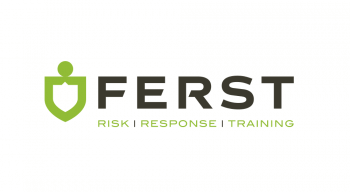There’s no denying it, we’re experiencing more frequent, life-threatening emergencies across Australia each year. Responding to these events however requires more resources, smarter strategies and quicker action. But it seems that unless lives are critically impacted, legislation to improve workplace safety does not move at the same pace.
Alex Robertson, an emergency response specialist at FERST, has extensive experience as an ADF Instructor and Technician says “A well-trained emergency response team creates a more productive, empowered and resilient workforce that is prepared to respond to today’s threats and challenges”.
Whilst every organisation requires individual training programs, they all have one common requirement – to comply with Australian Standard 3745. Compliance however is not always enough, as no single emergency event is the same. A broad response evacuation plan may not always be effective.
2020 has revealed many flaws in this standard procedure close to home. The bushfire smoke in our Capital triggered smoke alarms in 250 commercial premises. Organisations without a appropriate procedures in place faced a lengthy emergency response time – over 6 hours for some, which left occupants outside exposed to the smoke. Had there been an effective plan in place, the emergency control organisation would have been able to quickly assess the situation and identify the cause of the alarm, resulting in people being able to act appropriately without lengthy smoke inhalation.
Brent Wallis, a FERST emergency response specialist and RFS Group Officer for Monaro District states:
“Smoke is the biggest danger to human life, not the flame itself. Exposure to smoke, even for a short amount of time, can cause ongoing health problems.”
It is equally important that people are trained and ready to respond to a fire in the workplace. 95% of all fires are extinguishable if the suitable fire extinguisher is used correctly and promptly (Fire and Safety Australia, 2013). What is alarming however, is that only 13% of people are aware that different fires require different extinguisher types and misuse can have catastrophic consequences. With appropriate training however, this is easy to rectify.
Today, it’s not just fire based emergencies that workplaces need to prepare for. Organisations in Australia regularly face bomb threats, suspicious mail, robbery and theft, and hostile intruder situations requiring site specific emergency response arrangements. As with all emergencies, safe and effective responses require proper planning and consideration, allowing the emergency control organisation to make effective decisions and take the most appropriate course of action.
There is no doubt that an organisation’s most important asset is its people. As emergency response specialists, protecting people is at the very core of what we do at FERST. For the last 13 years, we have ensured local workplaces like yours, are well prepared to respond to a range of emergency situations, keeping your people safe.
Author: Brendan Garske

